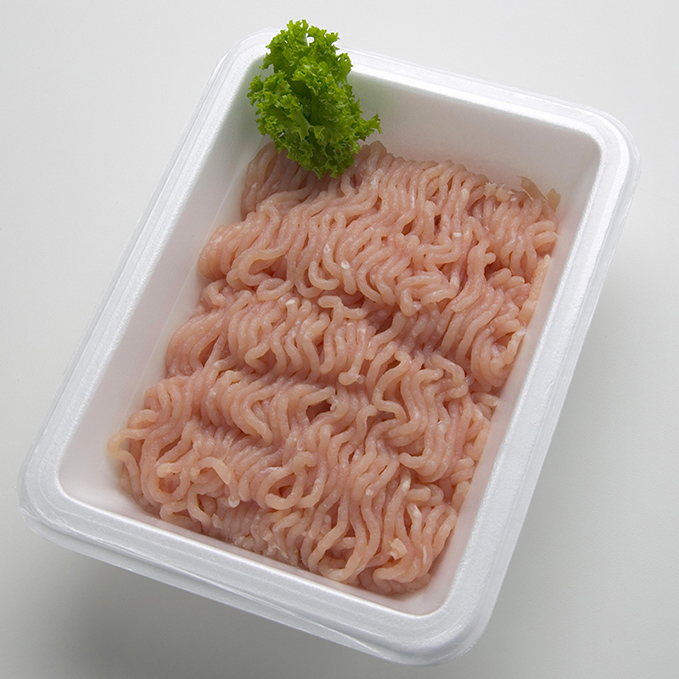DPH Advises Delaware Residents of Multi-State Salmonella Outbreak Involving Turkey Products
Division of Public Health | News | Date Posted: Friday, November 9, 2018
Division of Public Health | News | Date Posted: Friday, November 9, 2018


DOVER – The Delaware Division of Public Health (DPH) is advising Delawareans of a multi-state outbreak of Salmonella Reading infections linked to raw turkey products. According to the CDC, 164 people infected with the outbreak strain of Salmonella Reading have been reported in 35 states, including one person in Delaware. Of the cases reported nationally, 63 people have been hospitalized. No Delawareans have been hospitalized. No deaths have been reported from Delaware. One death was reported from California.
The CDC says the outbreak strain has been identified in samples taken from raw turkey pet food, raw turkey products and live turkeys. Of the 85 people interviewed, 44 (52 percent) reported preparing or eating turkey products that were purchased raw, including ground turkey, turkey pieces and whole turkey. People who were ill reported buying many different brands of raw turkey products from multiple stores. Additionally, three of the 85 people who were interviewed said they became sick after pets in their home ate raw ground turkey pet food. Another three people interviewed worked in a facility that raises or processes turkeys, or lived with someone who did.
A single, common supplier of raw turkey products or of live turkeys has not been identified. As we approach the Thanksgiving holiday period, the CDC is not advising consumers to avoid eating properly cooked turkey, and is not advising retailers to stop selling raw turkey products. However, individuals should follow these steps to help prevent Salmonella infection from raw turkey:
Most people with Salmonella infections develop diarrhea, fever and stomach cramps 12 to 72 hours after being exposed to the bacteria. The illness usually lasts four to seven days, and most people recover without treatment. Children younger than 5, adults older than 65, and people with weakened immune systems are more likely to have severe illness.
People who experience these symptoms should seek medical attention.
For more information about this outbreak, visit https://www.cdc.gov/salmonella/reading-07-18/index.html . For more information about preventing Salmonella infection, visit https://www.cdc.gov/salmonella/general/prevention.html.
A person who is deaf, hard-of-hearing, deaf-blind or speech-disabled can call the DPH phone number above by using TTY services. Dial 7-1-1 or 800-232-5460 to type your conversation to a relay operator, who reads your conversation to a hearing person at DPH. The relay operator types the hearing person’s spoken words back to the TTY user. To learn more about TTY availability in Delaware, visit http://delawarerelay.com.
The Department of Health and Social Services is committed to improving the quality of the lives of Delaware’s citizens by promoting health and well-being, fostering self-sufficiency, and protecting vulnerable populations. DPH, a division of DHSS, urges Delawareans to make healthier choices with the 5-2-1 Almost None campaign: eat 5 or more fruits and vegetables each day, have no more than 2 hours of recreational screen time each day (includes TV, computer, gaming), get 1 or more hours of physical activity each day, and drink almost no sugary beverages.
Related Topics: cdc, DPH, raw turkey, salmonella, thanksgiving
Keep up to date by receiving a daily digest email, around noon, of current news release posts from state agencies on news.delaware.gov.
Here you can subscribe to future news updates.
Division of Public Health | News | Date Posted: Friday, November 9, 2018


DOVER – The Delaware Division of Public Health (DPH) is advising Delawareans of a multi-state outbreak of Salmonella Reading infections linked to raw turkey products. According to the CDC, 164 people infected with the outbreak strain of Salmonella Reading have been reported in 35 states, including one person in Delaware. Of the cases reported nationally, 63 people have been hospitalized. No Delawareans have been hospitalized. No deaths have been reported from Delaware. One death was reported from California.
The CDC says the outbreak strain has been identified in samples taken from raw turkey pet food, raw turkey products and live turkeys. Of the 85 people interviewed, 44 (52 percent) reported preparing or eating turkey products that were purchased raw, including ground turkey, turkey pieces and whole turkey. People who were ill reported buying many different brands of raw turkey products from multiple stores. Additionally, three of the 85 people who were interviewed said they became sick after pets in their home ate raw ground turkey pet food. Another three people interviewed worked in a facility that raises or processes turkeys, or lived with someone who did.
A single, common supplier of raw turkey products or of live turkeys has not been identified. As we approach the Thanksgiving holiday period, the CDC is not advising consumers to avoid eating properly cooked turkey, and is not advising retailers to stop selling raw turkey products. However, individuals should follow these steps to help prevent Salmonella infection from raw turkey:
Most people with Salmonella infections develop diarrhea, fever and stomach cramps 12 to 72 hours after being exposed to the bacteria. The illness usually lasts four to seven days, and most people recover without treatment. Children younger than 5, adults older than 65, and people with weakened immune systems are more likely to have severe illness.
People who experience these symptoms should seek medical attention.
For more information about this outbreak, visit https://www.cdc.gov/salmonella/reading-07-18/index.html . For more information about preventing Salmonella infection, visit https://www.cdc.gov/salmonella/general/prevention.html.
A person who is deaf, hard-of-hearing, deaf-blind or speech-disabled can call the DPH phone number above by using TTY services. Dial 7-1-1 or 800-232-5460 to type your conversation to a relay operator, who reads your conversation to a hearing person at DPH. The relay operator types the hearing person’s spoken words back to the TTY user. To learn more about TTY availability in Delaware, visit http://delawarerelay.com.
The Department of Health and Social Services is committed to improving the quality of the lives of Delaware’s citizens by promoting health and well-being, fostering self-sufficiency, and protecting vulnerable populations. DPH, a division of DHSS, urges Delawareans to make healthier choices with the 5-2-1 Almost None campaign: eat 5 or more fruits and vegetables each day, have no more than 2 hours of recreational screen time each day (includes TV, computer, gaming), get 1 or more hours of physical activity each day, and drink almost no sugary beverages.
Related Topics: cdc, DPH, raw turkey, salmonella, thanksgiving
Keep up to date by receiving a daily digest email, around noon, of current news release posts from state agencies on news.delaware.gov.
Here you can subscribe to future news updates.